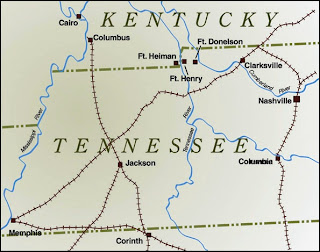Twenty-year-old Bobbi Snow is more at home behind an easel than on the golf green. After all, being a pro golfer was her twin brother’s goal and her father’s obsession. But when Bobbi’s careless accident causes a fire that leaves her brother crippled, she’s determined to dust off her clubs and follow his dream. Playing the hero might be the only way to save her splintering family. Maybe then her father will forgive her. But can she ever forgive herself?
Today, I want to introduce you to a super talented author - Terri Tiffany!
I met Terri online through blogging. If you need some encouragement, hope, or inspiration, make sure to stop by Terri's blog. Her open and honest approach of her writing journey is refreshing. She also has a love for photography.
Terri is repped by Linda S. Glaz of Hartline Literary Agency.
Terri's debut novel - The Mulligan - was released earlier this month on February 6th. Please welcome Terri, and let's help her celebrate this milestone on her writing journey.
And yep, I don't see any rafflecopters, so we are also doing an old fashioned giveaway.
THE GIVEAWAY - Terri has generously offered to give away a copy of The Mulligan., and I'm throwing in a Starbucks gift card to one lucky winner. To be entered in the drawing, all you have to do is answer Terri's question at the end of the interview. Answer in the comment section. For those who have trouble commenting on Blogger, leave your answer on Terri's Author Facebook Page - and while you stop in, don't forget to "like" her Author Page! The winner of Terri's book and the gift card will be drawn at random next Wednesday, March 4, 2015, at 9pm CDT, by Terri, and will be announced in a post, right here, on Thursday, March 5, 2015.
Let's Chat!
Welcome Terri! I’m so glad you are here today to talk about your debut novel, The Mulligan.
Thank you for having me today. I've never done a blog interview before about my book so I'm excited to share with your readers.
I'm so honored to be the first blog interview, Terri! So how long have you been writing? Is this your first novel?
This is not my first novel. I think it's my seventh and I have two more written in the wings. I started writing back in the 90s for publication but stopped after one novel and one rejection. Then I got serious in 2005 and started writing non-fiction with some success. That's when I also wrote my second novel and began learning fiction.
In your own words, tell us a bit about The Mulligan. What is the inspiration behind the novel?
When my husband lost his job in 2007, he attended a golf college to learn a new skill. We were surprised when one lone female attended too with all those men. She intrigued me and I began to wonder about her life and why she'd put herself through such a situation. The Mulligan was born from that inspiration.
Is there a sequel or series planned?
Not for the Mulligan. I was able to write a prologue which I think neatly gave a good ending.
They say that there is a bit of each of us in all of our characters. Which character in the book is most like you, and why?
That's so true. Bobbi, the main character, struggles with the same issues I do. Wanting to take our own path and not wait on God to show us his plans for our life.I am also a fixer. I think that comes from my counseling background. When someone has a problem, I want to find a quick way to fix it, not wait and see what God can do. My husband attending golf college is a good example. He needed a new skill and I suggested going there before searching other options. But God used that choice still, like he does all our choices for good or bad. I learned about golf and was able to sell my first book. My husband also has a great hobby but is back working in his original field.
Love that last answer. So now, what do you read for enjoyment?
I read a lot of women's fiction and mostly contemporary works. Jodi Pecoult, Robin Jones Gunn, Billy Coffey (Love his work!)and a little Stephen King.
I must ask—what is your favorite writing snack or drink?
Funny you ask that. I just bought a new computer and I promised myself I would not eat at the keyboard. I'm not sure how long that commitment will last. But normally I munch on crackers.
I'm a cracker muncher too. Well, it's been a real fun chat, Terri! Thanks for stopping in!
Thank you so much for having me!
THE GIVEAWAY!
Now, Terri will ask you a question, and she will give away a signed copy of The Mulligan to one lucky commenter – and don't forget, I'm throwing in a Starbucks gift card.
Take it away Terri…
My main character in The Mulligan is torn between her passion to paint and her love for her brother. Was there ever a career you wished you'd followed but instead chose something else?
Oooh, great question!
You can find Terri at:
Her blog: http://terri-treasures.blogspot.com
On Facebook:
On twitter @territiffany1
The Mulligan a Novel by Terri Tiffany
Between you, me and the gatepost,
Loree
Loree Huebner
Writing with one foot in the past...
On Twitter @LoreeHuebner
On Instagram @lunapickles
Writing with one foot in the past...
On Twitter @LoreeHuebner
On Instagram @lunapickles
www.facebook.com/LoreeHuebnerAuthor




.jpg)


